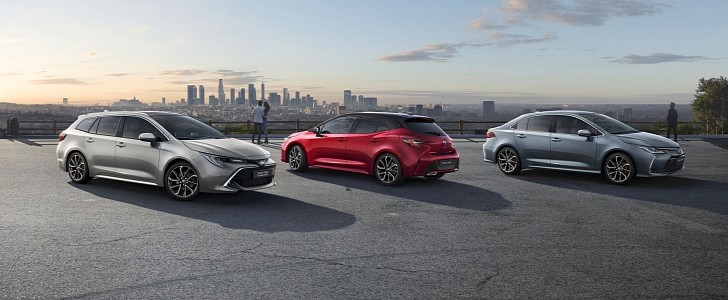Here we go again. After a slight recovery in the last weeks of 2021, the global chip inventory has once again become incredibly constrained, with most carmakers struggling to find the necessary semiconductors for their cars.
In other words, car manufacturers are back to the struggle that came in multiple waves throughout 2021, so many of them are now turning to various measures in an attempt to reduce the disruptions in their global operations.
Like other big and small automakers, Toyota has recently confirmed that the global chip shortage is making it extremely hard to maintain the production of cars at the same level.
The company has acknowledged it’s now more than likely to miss the original annual production target of 9 million vehicles, and the reason is the one anyone can easily anticipate. The global chip shortage means the Japanese carmaker must slow down the production of some cars simply because it doesn’t have enough semiconductors to install on the vehicles it builds.
Toyota estimates the February production would reach 700,000 units in all its plants worldwide. The figure isn’t necessarily bad, as it’s still an increase over the 2021 levels, but on the other hand, it’s approximately 150,000 units below what the company had in mind for this month.
Like everyone else, Toyota is also getting ready for some painful decisions to deal with the lack of chips. The company will suspend certain operations at eight of its plants, though the whole thing would only happen temporarily in the coming weeks.
Of course, Toyota has no estimate as to when things could come back to normal pretty much because nobody knows when it is supposed to happen anyway. Analysts originally predicted the end of the chip crisis would come to an end in 2022, but it’s already clear this wouldn’t happen until the last months of the year if we’re very optimistic.
Like other big and small automakers, Toyota has recently confirmed that the global chip shortage is making it extremely hard to maintain the production of cars at the same level.
The company has acknowledged it’s now more than likely to miss the original annual production target of 9 million vehicles, and the reason is the one anyone can easily anticipate. The global chip shortage means the Japanese carmaker must slow down the production of some cars simply because it doesn’t have enough semiconductors to install on the vehicles it builds.
Toyota estimates the February production would reach 700,000 units in all its plants worldwide. The figure isn’t necessarily bad, as it’s still an increase over the 2021 levels, but on the other hand, it’s approximately 150,000 units below what the company had in mind for this month.
Like everyone else, Toyota is also getting ready for some painful decisions to deal with the lack of chips. The company will suspend certain operations at eight of its plants, though the whole thing would only happen temporarily in the coming weeks.
Of course, Toyota has no estimate as to when things could come back to normal pretty much because nobody knows when it is supposed to happen anyway. Analysts originally predicted the end of the chip crisis would come to an end in 2022, but it’s already clear this wouldn’t happen until the last months of the year if we’re very optimistic.






